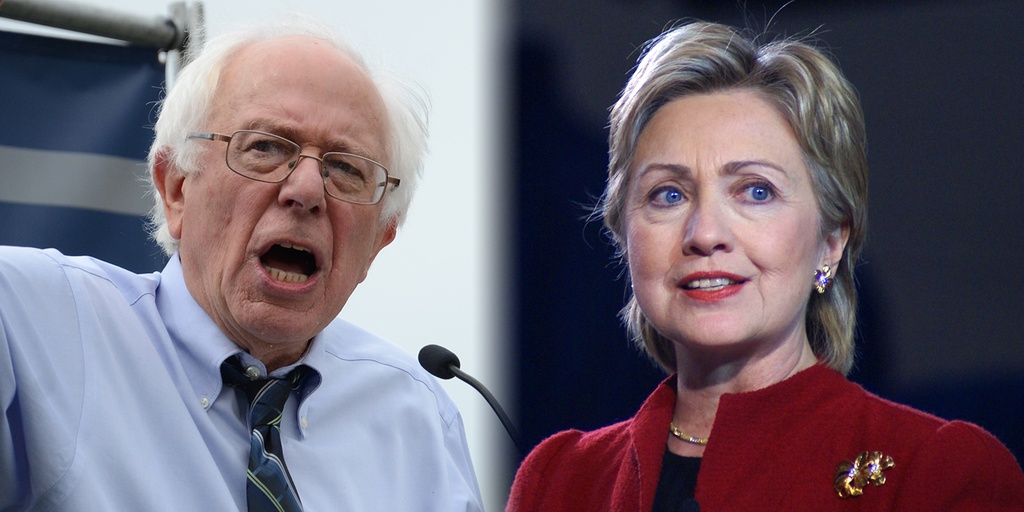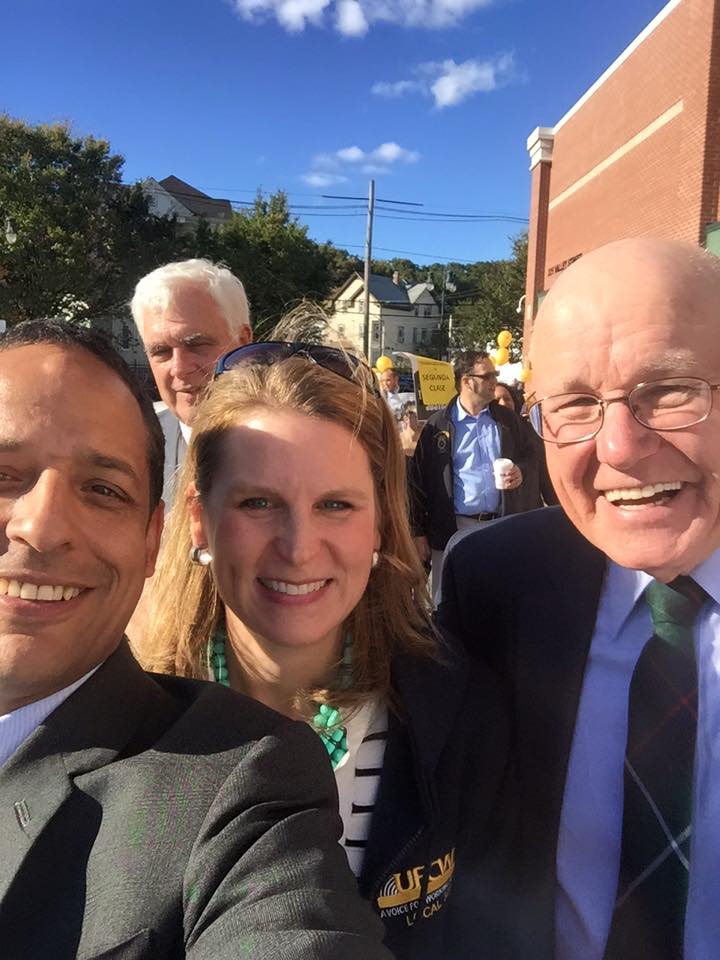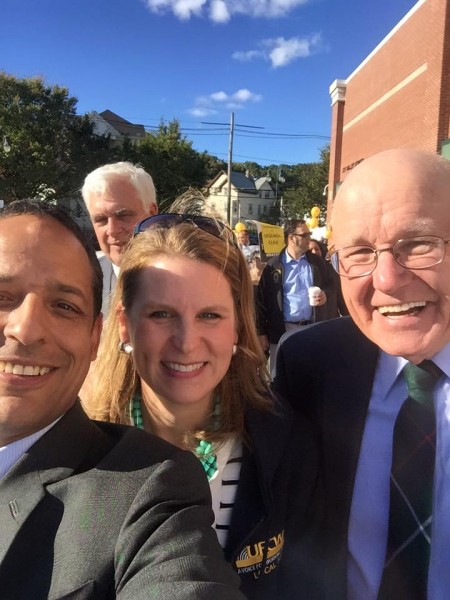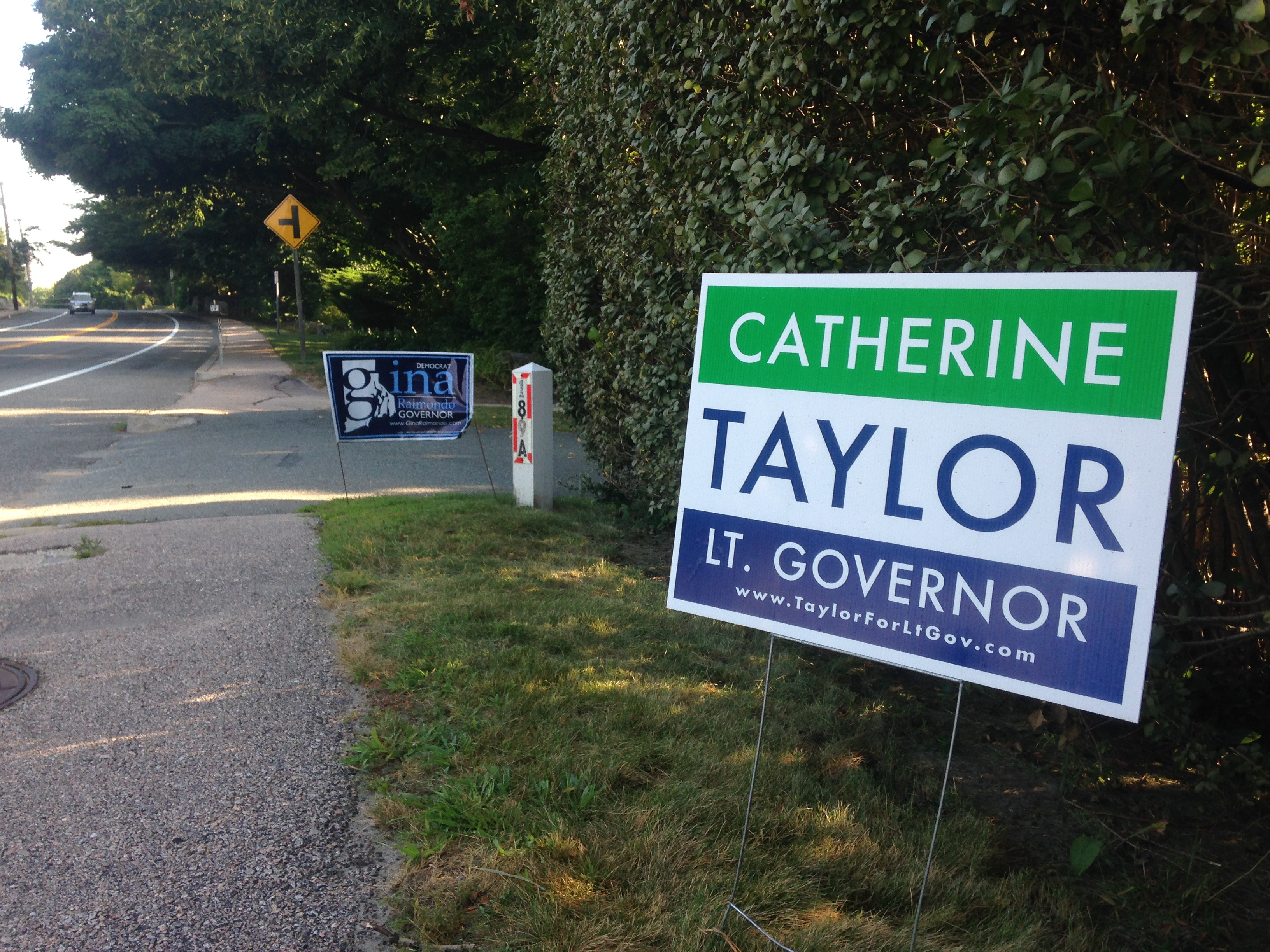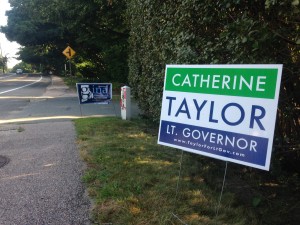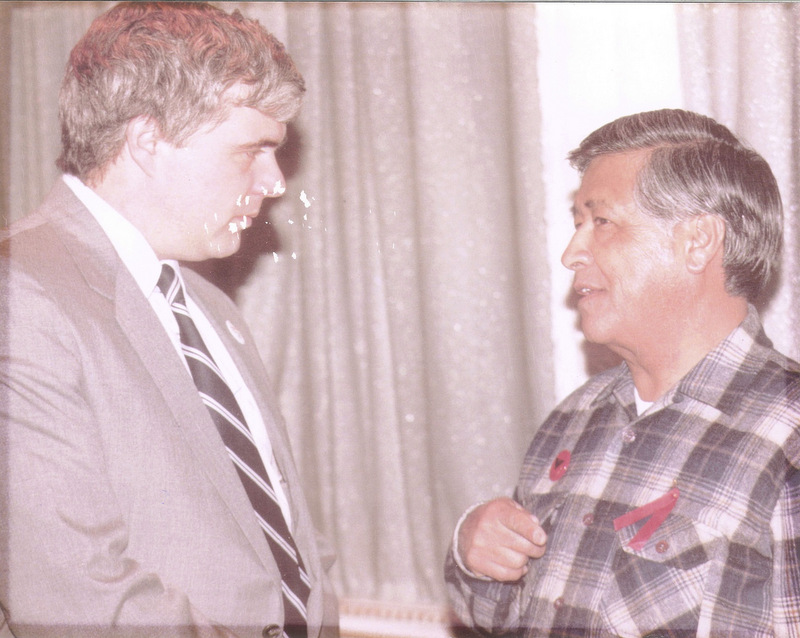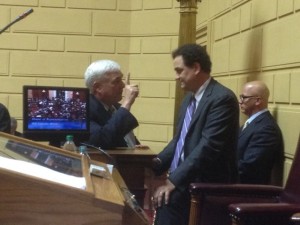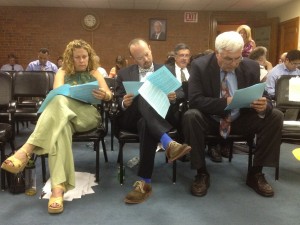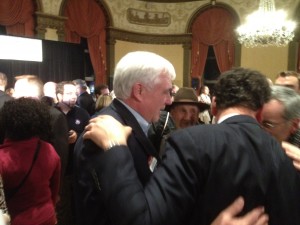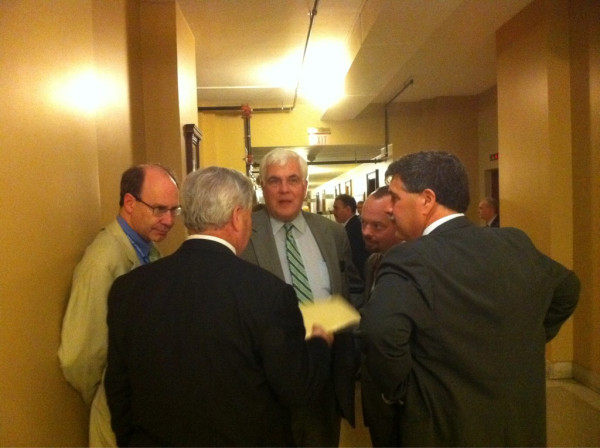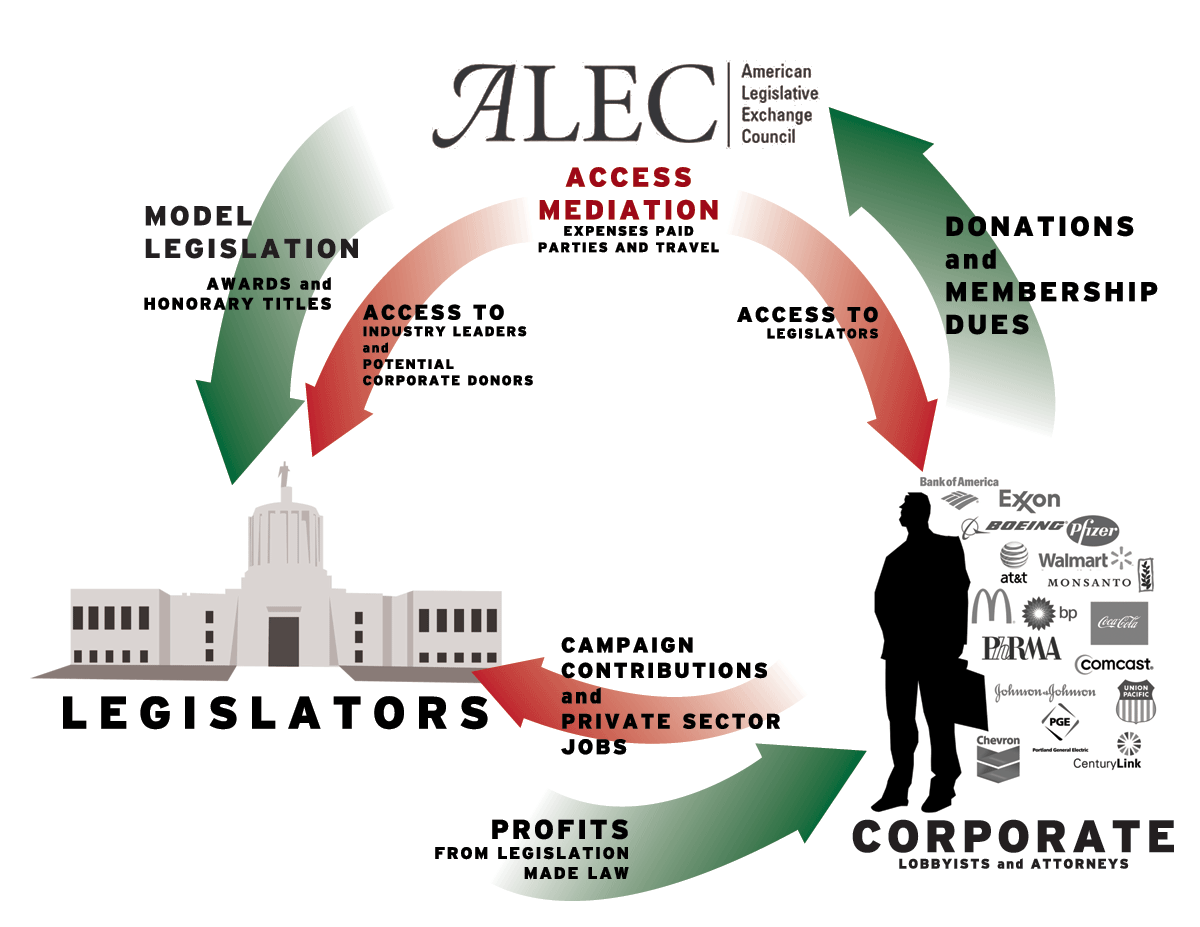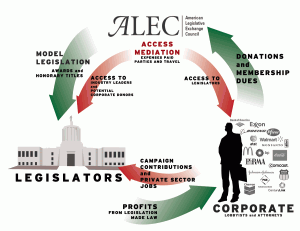 The Democratic Primary in Wisconsin has a lot on the line ideologically, and it could reverberate East.
The Democratic Primary in Wisconsin has a lot on the line ideologically, and it could reverberate East.
After Sanders swept six of the last seven contests, by a margins averaging about 75 percent, the contest moves into Wisconsin where progressivism and the unionism face a historic ideological challenge. Will Wisconsin vote for the principles of political revolution they were founded on or will they default to neoliberal pragmatism?
Laborers or labor unions
A little discussed fact is that it is the unions and their members have been the major contributors to Bernie Sanders campaign. Most notably are the Machinist Union, Teamsters Union, National Education Association, United Auto Workers, United Food and Commercial Workers, Communication Workers of America and the International Brotherhood of Electrical Workers, not to mention the US Postal Service and the Laborers Union.
However, there is a schism. Unions like the American Federation of State, County and Municipal Employees (AFSCME), which was central in the fight with Governor Walker on the right to organize, endorsed the reformist darling of the Democratic Party establishment Hillary Clinton. Since Sanders seems more popular with the membership than the leadership, it is not clear how this will translate into votes. The AFL-CIO, the largest national union, has declined to endorse either candidate.
Which labor movement will show up? The one who fights for workers rights or the one who believes they already have a seat at the table that it could lose?
Independent voters
Wisconsin has an open primary and at this point it looks like the blue collar workers will largely support Sanders and not be tempted to cross over to Trump like they did in Ohio. Though Trump has also has taken an anti-NAFTA position, it is Bernie Sanders who has clearly articulated a pro-worker vision from the $15 minimum wage to a pledge to rewrite all of the so-called free-trade agreements. It is Sanders appeal with independents that his campaign bases there claim that he is the stronger candidate in the general election and they may break his way on Tuesday.
Wisconsin’s progressive roots
And then there is the question of ideology. There’s been much discussion in this campaign about progressivism. After Bernie Sanders laid out a clear progressive, social democrat platform, Hillary Clinton claimed that she was “a progressive who can get things done.” This was particularly startling since Hillary, a household name, has been practicing triangulation and transactional politics which was started by her husband Bill Clinton through her career. Clintonism, which has dominated the Democrats ideology for decades, claimed that by moving the discussion to the middle, the Democrats could get the Republicans to compromise. What happened, which is what many on the left predicted, is that this tactic pulled the whole party to the right.
Wisconsin should know what the term means. The Progressive Movement was founded there by Bob La Follette, who is known as “Fighting Bob.” At the age of 64, the former governor and staunch supporter of Socialist Eugene V Debs, ran for president largely on an anti-corruption platform, demanded investigations into the war profiteering and corrupt monopolies, and that the big banks be broken up. His platform called for taking over the railroads and private utilities, calling for child labor laws, the right to organize and increasing civil liberties ending racism.
He campaigned for the presidency on a pledge to “break the combined power of the private monopoly system over the political and economic life of the American people” and denouncing, in the heyday of the Ku Klux Klan’s resurgence, “any discrimination between races, classes, and creeds.”
This laid the groundwork for the Progressive Party of Wisconsin which influenced Franklin Delano Roosevelt’s New Deal, and was carried on by his son establishing the progressive platform as core values in progressive politics for decades.
Bernie for Wisconsin
What is on the line Tuesday is whether Wisconsin stays true to its progressive roots, or if after years of being clobbered by the Koch brothers, it takes on the mantle of neoliberal centrism. Its progressive roots still live on, at least, at the an annual event called the Fighting Bob Fest where, in October 2014, Bernie Sanders spoke on his familiar topic- Democracy or Oligarchy. You can read the full speech here – or watch the video.
After eviscerating the Koch brothers and the racist right wing fringe, pillars of power in the Republican Party, Sanders lays out the Progressive Platform that he is currently campaigning on – demanding campaign finance reform, breaking up the banks, single-payer health care and strengthening the safety net with a passionate plea for social, environmental and economic justice.
He said we are in the midst of the greatest crisis since the Civil War.
And this is not an easy fight. They have huge resources. They have think tanks. They have media. You name it, they’ve got it.
But there is one thing they don’t have. While they have unlimited sums of money, what we have is the people.
And if we can overcome some of our differences, we can focus on the broad issues facing America: jobs, health care, education, the environment, the needs of children. And on these issues, believe it or not, we are a united nation.
So let us reach out to our brothers and our sisters, fellow workers, fellow family members, and let us create a movement that tells Washington: We are not asking you, we are telling you.
Change will take place in America not through some backroom negotiations.
Change takes place in America when millions of people demand it.
Wisconsin decides Tuesday if it wants systemic change or the status quo primacy of the 1 percent and Wall Street. The same question faces Rhode Islanders on April 26th.

